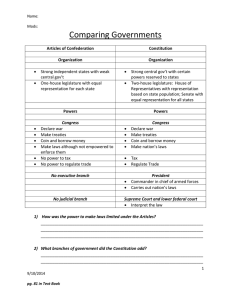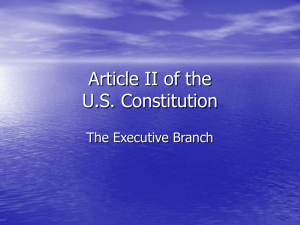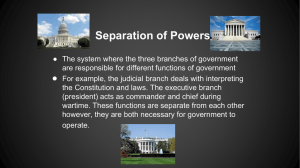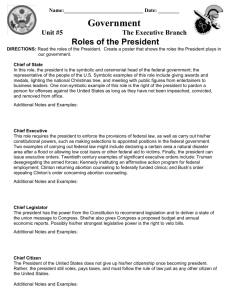Powers of Congress
advertisement
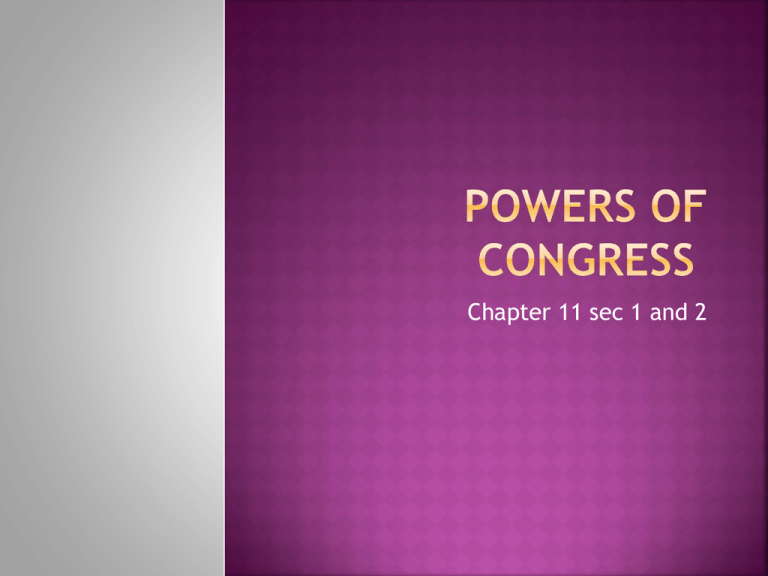
Chapter 11 sec 1 and 2 The Constitution places many restrictions on Congress. Large areas of power are denied to Congress because of what the Constitution says, and what it does not say. The Constitution gives Congress several specific powers, and in three different ways. (1) Expressly, in so many words- the expressed powers. (2) By reasonable deduction from the expressed powers- the implied powers. (3) By creating a National Government for the United States- the inherent powers. The strict constructionists argued that Congress should be able to exercise only (a) its expressed powers (b) those implied powers absolutely necessary to carry out those expressed powers. Liberal constructionists A broad construction of the power given to the congress The Power to Tax: A tax is a charge levied by government on persons or property to meet public needs. But, notice, taxes are sometimes imposed for other purposes. Recall the power to tax is not unlimited. Congress cannot lay a tax on Church services. Such a tax would violate the 1st Amendment. The Constitution places four explicit limitations on the taxing power. First, Congress may tax only for public purposes, not for private benefit. Second, Congress may not tax exports. Third, Direct taxes must be apportioned among the States, according to their populations. All indirect taxes must be levied at the same rate in all parts of the country Direct tax -is one that must be paid by the person on whom it is imposed Indirect tax-tax paid by one person then passed on to another (cigarettes, petroleum, alcohol, anything else we cant live without) Congress has the power to “borrow money on the credit of the United States.” There is no constitutional limit on the amount that congress can borrow. The Federal Government regularly practices deficit financing. That is, it spends more than it takes in each year, and it borrows to make up the difference. The commerce power is the power of Congress to regulate interstate and foreign trade. It is as vital to the welfare of the nation as the taxing power.



